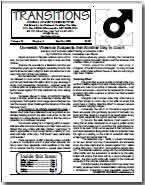The confessional culture has been with us for decades. The most intimate details of celebrities’ lives have been smeared over the front pages and relived in interviews and autobiographies, so it should come as no surprise that Sir Roger Moore has opened up to Piers Morgan (who else?) about the violence he experienced at the hands of both of his first two wives. Another day, another glimpse of the lachrymose lifestyles of the rich and famous.
Except something about this interview is different. Rihanna, Tina Turner and countless other women have told their sad tales of abusive relationships. But, after dredging the recesses of my memory and Google, I’ve been unable to find a single comparable example of a male celebrity disclosing experiences as a victim.
Astonishingly, male stars such as Dennis Waterman would speak about their own history of violence against women long before any man would disclose the reverse. Were there any doubt about the level of stigma and shame attached to male victimisation in intimate partner violence, let that observation banish it once and for all.
So the interview, to be broadcast this Friday, is perhaps more groundbreaking than anyone involved realised. If it were with some hip, young, anguished method actor it might be less surprising, but this is Sir Roger Moore: the 84-year-old embodiment of British stiff upper lip, a knight of the realm who attained superstar status by playing James frickin’ Bond, no less. It may be a measure of how far the debate has moved on in recent years that someone like this can mention partner violence almost as an incidental aside, and nobody seems especially surprised.
Whatever set of statistics one prefers, it is beyond dispute that a significant proportion of men will experience some form of domestic abuse at some point in their lives. For some it will be medically serious and/or psychologically traumatising. The phenomenon can affect people in all walks of life. So how many male actors, TV stars, musicians, sports heroes and other celebrities must have written their memoirs and opened the windows on their lives, yet kept a few bruised truths from their ghost writer’s ear?
Quite a few tales of abused husbands pepper the showbiz and historical archives, but they have always come to light through arrest reports, lawsuits, media speculation or, for example, the late Whitney Houston admitting that it was she, not Bobby Brown, who was physically violent in their notoriously destructive relationship (although that predated Brown’s arrest in for battery in 2003). Nor is this new – Humphrey Bogart was stabbed in the back with a butcher’s knife by his wife Mayo Methot in 1938. Historians report that Abraham Lincoln was severely beaten and abused by his wife Mary Todd. The one thing these men and many others have in common is that they never spoke about it in public.
No one should be ashamed of keeping their history private. The decision to disclose personal trauma is about as personal as they come and there is no obligation on the victim of any violence or abuse to make their experiences public property. But nor should they feel ashamed to speak out.
It is common for all victims of domestic violence to feel shame and blame themselves for the abuse, but the tendency of others to blame the victim may be even more common with male victims than female.
There is a widespread assumption that he must have done something to deserve it or that the woman’s violence must have been in self-defence. Moore’s personal history relays a string of failed marriages amid accounts of infidelity and betrayal – the man who played the Saint was himself no saint, but then few of us are. Yes we have only heard one side of this story, but that is enough for now. Violence should never be excused or accepted, whatever the circumstances.
Family violence researchers have long noted that stigma, shame and embarrassment can be insurmountable barriers preventing victims of abuse from accessing help. Every victim, famous or not, who speaks publicly and willingly about these issues helps to chip away at the stigma. Every radio phone-in or soap opera plot helps to dispel ignorance and prejudice. In revealing these most intimate details of his troubled early life, Sir Roger Moore has done a lot to break down a deadly taboo. He should take a bow.


